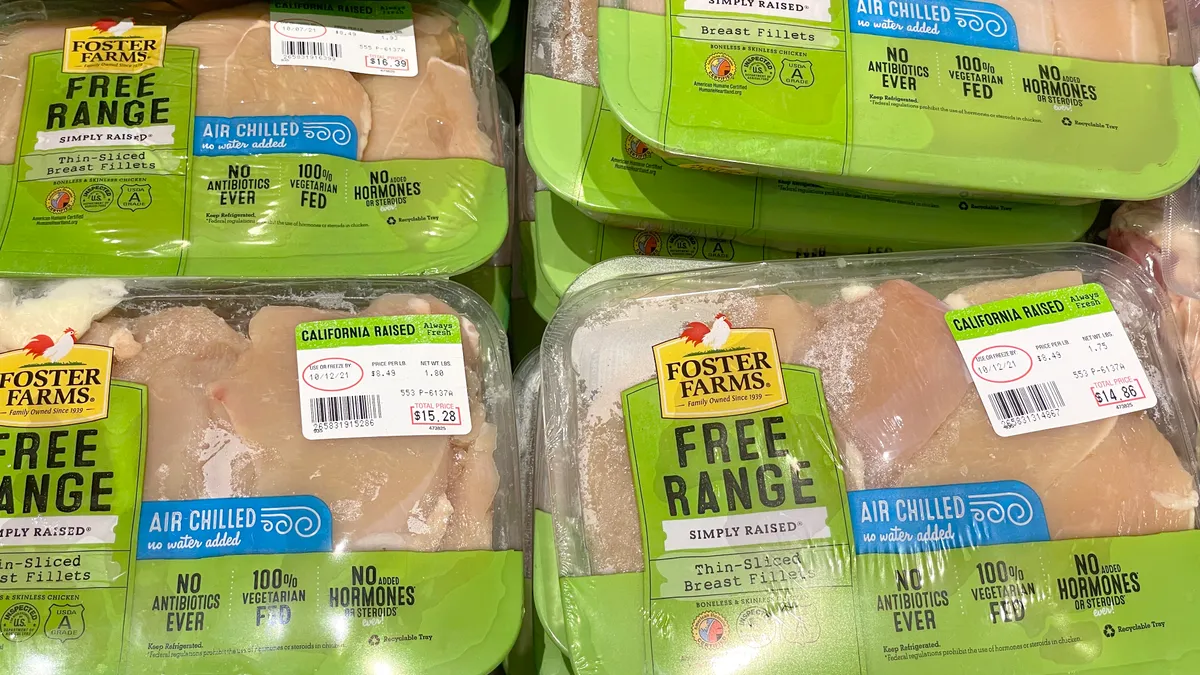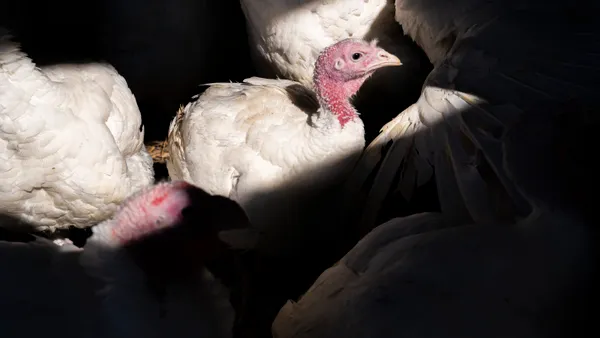Dive Brief:
- The U.S. Department of Agriculture released new guidance last week encouraging meat producers to provide more documentation verifying animal-raising and environmental label claims such as "no antibiotics ever" or "raised with regenerative agriculture practices."
- The revised guidelines from the USDA's Food Safety and Inspection Service recommend producers use third-party verification to substantiate claims around animal or environmental stewardship. Claims about the use of antibiotics should also be backed up with a routine sampling and testing program, according to the guidance.
- The USDA said in a news release that the guidelines are meant to be a clear signal to producers that the department "will take enforcement action against any establishments found to be making false or misleading negative antibiotic claims."
Dive Insight:
The USDA has raised concerns about the veracity of label claims particularly with the use of antibiotics. A recent FSIS study found antibiotic residues in about 20% of samples tested of meat bearing “raised without antibiotics” labels.
While the USDA has advised those companies to make sure future products aren't misbranded, the department is taking broader action to tighten guidance for a wide range of claims from antibiotic use to sustainability practices. Producers are encouraged to not only use third-party verification, but also include the certifier's name, logo and website address on consumer packaging.
“These updates will help to level the playing field for businesses who are truthfully using these claims and ensure people can trust the labels when they purchase meat and poultry products," Agriculture Secretary Tom Vilsack said in a statement.
Meat producers' sustainability claims more broadly have come under mounting scrutiny from consumers and lawmakers alike. Earlier this year, JBS was sued by New York's Attorney General for allegedly "greenwashing" and overstating its climate claims in advertising.
While FSIS is responsible for inspecting slaughterhouses and processing facilities, the agency does not have the jurisdiction to verify practices that occur on the farm. As a result, regulators are leaning heavily on documentation and third-party certification to verify animal and environmental stewardship claims.
"USDA authority does not reach back to the farm," Deputy Under Secretary for Food Safety Sandra Eskin told USDA radio. "We cannot determine whether a product is, in fact, 'grass fed' or 'free range,' and therefore we have to leverage these certifiers who have standards and who have systems to ensure the standards are correct."
The new guidance notably declines to wade into a debate over what defines truthful "free-range" or "pasture-raised" claims, saying codifying those terms could stifle innovation and doesn't allow for flexibility as consumer expectations for humane practices evolve.
Chicken producers are encouraged under the rule to not only rely on third-party verification, but also provide additional documentation to support each claim. The amount of documentation needed could vary according to the claim and circumstance, FSIS said.











